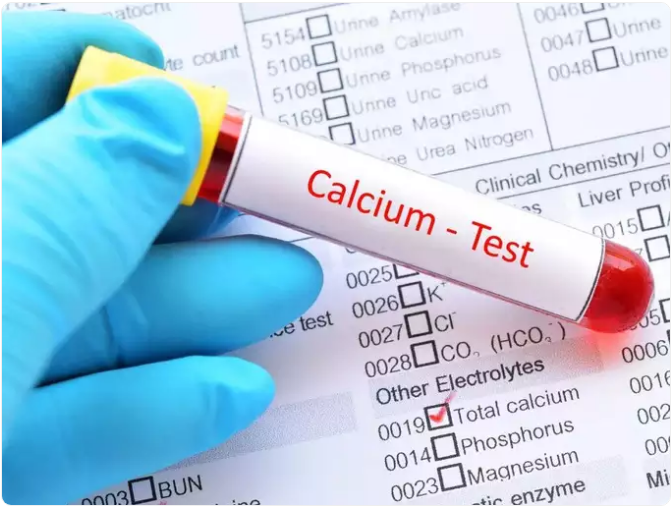
Calcium is the primary mineral constituent of our bones and one of the most important minerals in our bodies. Our cells, nerves, heart, muscles, bones, teeth, and blood clotting all require calcium. With more and more people receiving diagnosis of osteopenia and osteoporosis it’s a topic I wanted to explore a little more.
But what determines how much calcium is in your body?
When blood calcium levels are too low, the body takes it from bones to release calcium and bring the blood level back to normal.
When blood calcium levels get too high, that surplus has to go somewhere… so it goes to the bones, soft tissues, stool, or the urine.
However, doctors don’t routinely test it by itself unless there is an obvious need, but oftentimes it is part of a Comprehensive metabolic panel. A blood calcium test is usually more accurate in detecting certain conditions like specific bone diseases, pancreatitis, and hyperparathyroidism.
What’s A Normal Blood Calcium Level For A Healthy Adult?
In reference to blood calcium levels, Dr. Jim Norman of the Norman Parathyroid Center says:
“We have several hundred ‘normal’ calcium levels in our database—no adult human has calcium levels below 9.0 mg/dL (this is in the US measurement of milligrams per deciliter (mg/dL), and 99% are between 9.3 and 9.9. 90% are between 9.5 and 9.8.” He has also shared that it’s “typically not normal for adults to have frequent or persistent (blood) calcium levels in the 10s.”
When serum calcium is frequently in the 10s, medical doctors would consider investigating hyperparathyroidism and even certain types of cancer.
Why Would I Want A Urine Calcium Test?
If you’re excreting high amounts of calcium, it could be an indicator of bone loss. To determine if this is really happening a 24-Hour Urine Calcium Test can help detect this.
This 24-Hour Urine Calcium Test will help identify if you’re peeing out too much calcium (also called hypercalciuria). The standard reference range that’s considered normal is 100 – 300 mg/24 hrs.
If you’re taking in 1,200mg calcium a day, most would agree that your urine calcium levels should be less than 300mg. Ideally, you want to be on the lower to middle end of this range. 100, 150, even 200… That’s considered about average for most adults even without osteoporosis.
If your levels are greater than 300 mg in 24 hours (>300 mg/24 hr) it could be an indicator of one of the following:
As I mentioned previously, high urine calcium results can also be an indicator of bone loss (osteoporosis and osteopenia). If your levels are elevated, it may be worth repeating along with a more extensive workup.
What Could A Low Urine Calcium Result Indicate?
24-Hour Urine calcium levels lower than the 100 – 250mg in a 24-hour period could indicate…
Both the blood calcium test and urine calcium test need to be an important part of your lab testing plan and discussion with your doctor.
There’s a lot more to a proper workup than that but this is a good start. When it comes to testing you need to be your own best advocate, do your research so you know what to ask for and how to do so confidently (it’s your health on the line here). The first step is to understand what the results mean so you can take the appropriate action.

Over the last 10 years Ed has been building a YouTube library to help people manage their own pain or movement limitations and increase performance through exercise. He regularly adds videos so be sure to subscribe and visit regularly


"Oh My Gosh- I am ALREADY feeling relief after a few days! I used to wake up 2-3 times a night with shooting pain that anti inflammatories couldn't touch. Now I have been waking up just because I want to notice what it feels like to lay in bed pain free- THANK YOU!."

"When I first started with your program I was experience a lot of pain. Walking was difficult. I had to stop and catch my breath every few minutes and lean against a wall for support. Now when I walk with my husband we go for over an hour. I never had to sit down and stop...and, hardly any pain!!! 😊😊 I can’t thank you enough."
Frustrated that you aren't recovering fast enough?
Discover how to heal from illness and injury using movement, food and lifestyle.
Leave a Reply